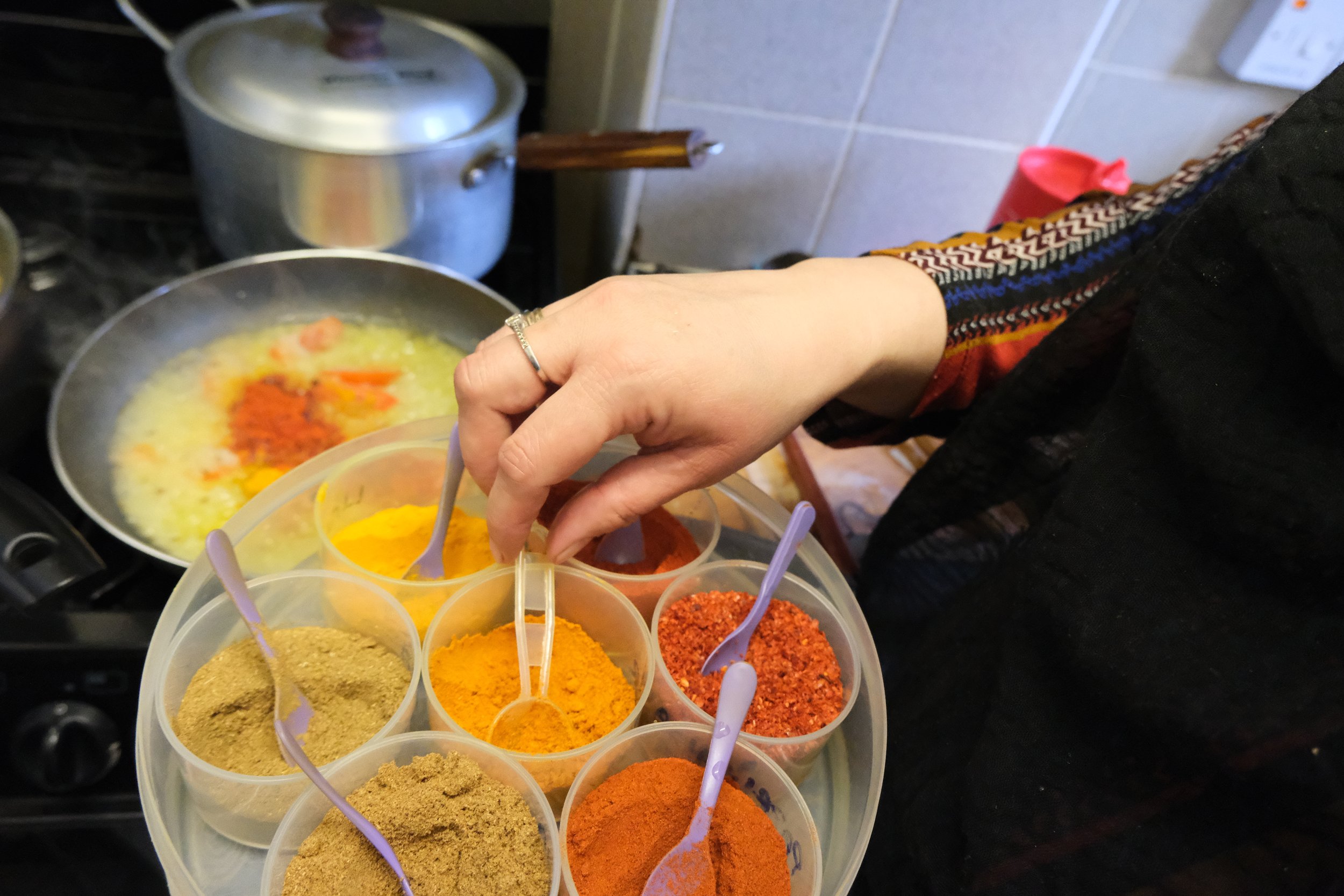
Critical race feminist studies of food
This site offers insights into our research on food in the UK from a feminist and critical race perspective.
You can find out about our thinking, research and writing about foodwork, food justice and food pedagogies, working with an intersectional feminist approach.
Photo used courtesy of photographer Miyeon Choi
Foodwork
The term foodwork refers to the “physical, cognitive, interactional, and institutional labor in the processes of feeding individuals, families, and groups” in the food system (Sobal, 2017, p. 127)
Foodwork is understood as gendered in that women are required to take responsibility for feeding work in the family. In spite of supposed shifts in equality, and men’s interest in cooking, women continue to do a disproportionate amount of foodwork (Beagan et al., 2008; Koch, 2019).
Take food shopping for a family: this entails budgeting, meal planning, travelling to and from the shops, comparing prices, substituting ingredients, unpacking and sorting even before cooking begins. Shopping requires an intimate knowledge of families’ food preferences, allergies, intolerances, special diets, health and dietary needs and desires, for a range of people from babies, toddlers, teenagers, older people and people who are sick. (McCabe and de Waal Malefyt, 2015, pp 48-65)
Photo used courtesy of photographer Miyeon Choi
What’s missing in some feminist analysis, as critical race scholars stress, is the significance of racialised and classed divisions and inequalities in domestic work and reproductive labour. The domestic sphere has been, and still is, a site of paid labour for women of colour, immigrant and poor women (Duffy, 2007; Holvino, 2010; Glenn, 1992)
Feminists of colour insist that middle-class white women’s professional careers and community work have been enabled because of women of colour’s and migrant’s paid domestic labour, and the transference of middle-class women’s daily maintenance and care work to these women (Duffy, 2007; Holvino, 2010).
Why intersectional?
Photo used courtesy of photographer Miyeon Choi
Our future
With environmental catastrophes on the horizon, understanding how existing forms of exploitation in the industrialised food system will be exacerbated and transformed by these conditions will be critical to our food futures.
As we grapple with the best strategies to develop policies and practices, what is important is that we recognise the significance of women’s paid and unpaid work, and feminist and activist commentary about this work and its inequalities.
Rather than food reform then, we need to develop not only food justice which attends to gendered, classed and racialised power dynamics, identities and hierarchies embedded within the food system, food policies and food practices but also food activism, and significantly for those of us in academia, studies and research on food.
As Alice Hovorka (2013) writes, a feminist framework understands gender and food as power-laden realms that reproduce difference and inequality between men and women. An intersectional feminist perspective insists on the interrelations between gender, race, class, religion and sexuality in relation to food, food practices and food systems and how these are structured by relations of power
— Parker, 2020; Parker et al., 2019; Williams-Forson and Wilkerson, 2011; Ternikar, 2019



